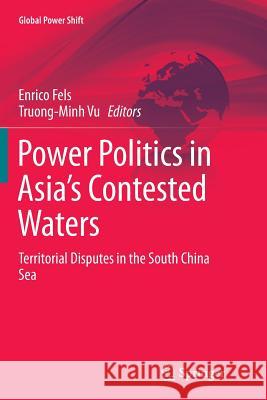Power Politics in Asia's Contested Waters: Territorial Disputes in the South China Sea » książka
topmenu
Power Politics in Asia's Contested Waters: Territorial Disputes in the South China Sea
ISBN-13: 9783319799001 / Angielski / Miękka / 2018 / 546 str.
Kategorie BISAC:
Wydawca:
Springer
Seria wydawnicza:
Język:
Angielski
ISBN-13:
9783319799001
Rok wydania:
2018
Wydanie:
Softcover Repri
Ilość stron:
546
Waga:
0.77 kg
Wymiary:
23.39 x 15.6 x 2.87
Oprawa:
Miękka
Wolumenów:
01
Dodatkowe informacje:
Wydanie ilustrowane











